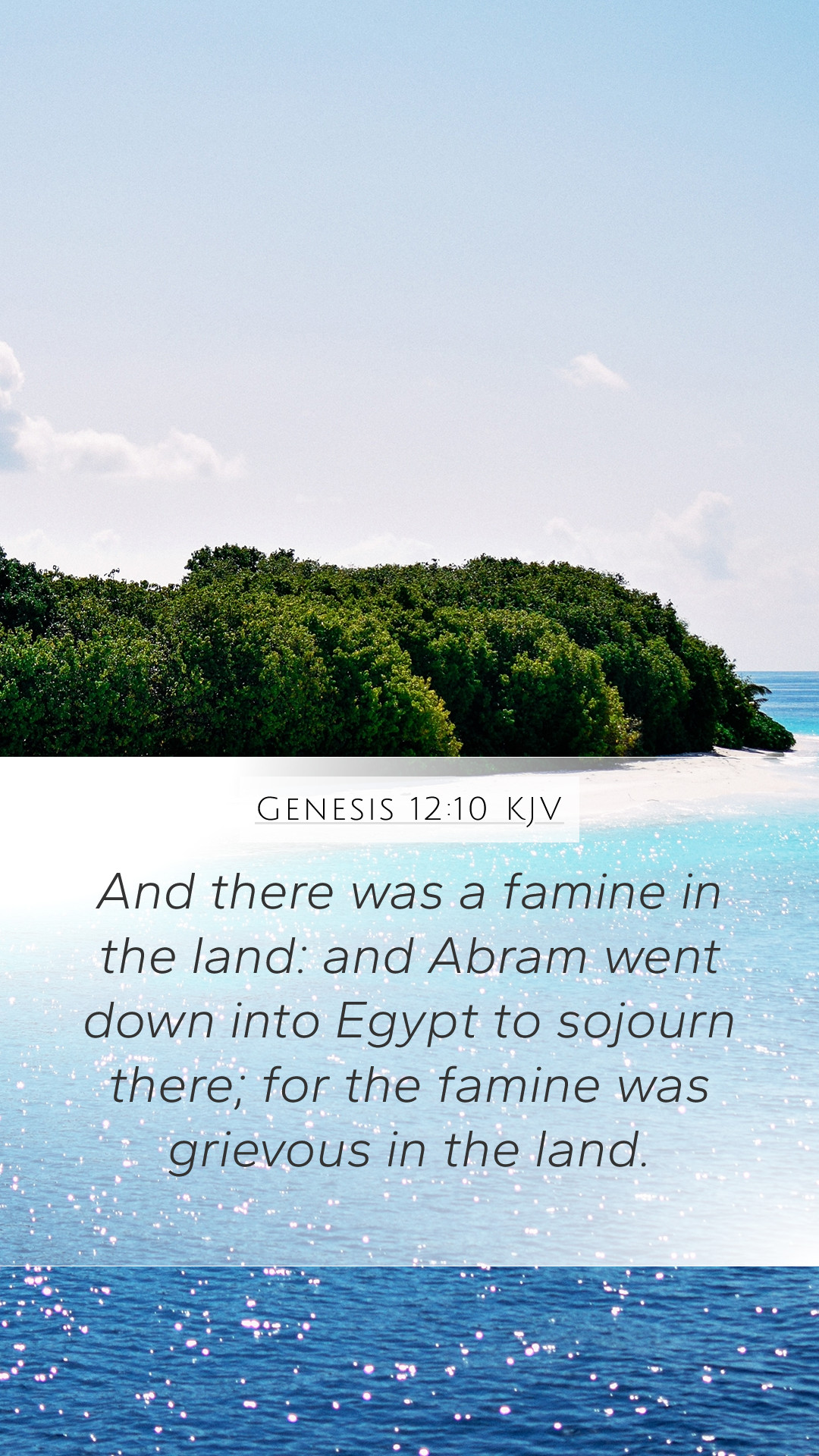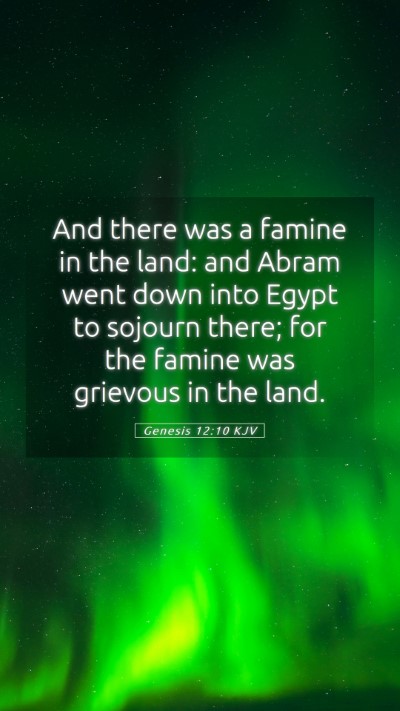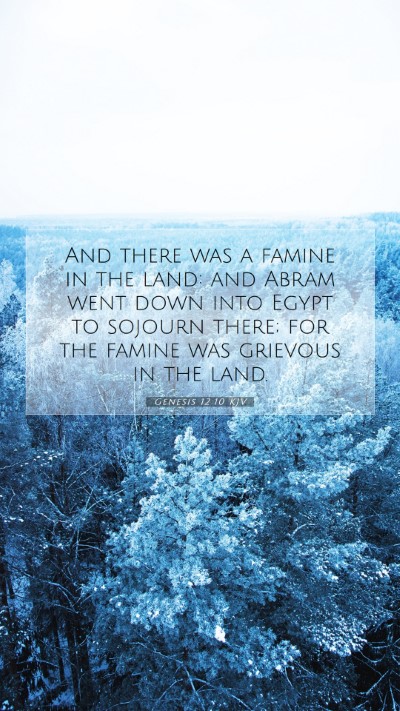Understanding Genesis 12:10
Genesis 12:10 states, "Now there was a famine in the land, and Abram went down to Egypt to dwell there; for the famine was severe in the land." This verse marks a significant moment in Abraham's journey, showcasing his response to hardship.
Bible Verse Meaning
In examining this verse, we delve into its context, implications, and the actions of Abram. Various public domain commentaries, including those of Matthew Henry, Albert Barnes, and Adam Clarke, provide insights into the meanings and interpretations of this scripture.
Historical Context
Abram, later named Abraham, is a pivotal figure in the Bible, known as the father of faith. The famine in the land reflects not only a physical struggle but also a spiritual test for Abram. Swiping from the temptations of doubt and fear, this instance reveals how human beings often react when faced with distress.
Commentary Insights
- Matthew Henry: Henry underlines that the famine was a test of Abram's faith. Rather than turning to the Lord for provision, Abram quickly sought refuge in Egypt, demonstrating a lack of trust in God's promises.
- Albert Barnes: Barnes emphasizes that Abram's move to Egypt reflects a common practice of the time. When faced with scarcity, many sought the abundance of neighboring regions. However, Barnes warns that leaving the land promised by God can lead to potential pitfalls.
- Adam Clarke: Clarke notes that going to Egypt symbolizes a reliance on worldly sources for sustenance rather than divine reliance. He regards this as a foreshadowing of later events in the lives of Israel’s descendants, many of whom would find Egypt a place of bondage.
Thematic Elements
This verse carries thematic elements such as:
- Faith and Doubt: Abram's journey to Egypt can be seen as a representation of humanity's tendency to doubt divine provision in times of crisis.
- Divine Promises: God's promises to Abram were to prosper him in the land, and his departure raises questions regarding reliance on God's provision versus human self-sufficiency.
- Obedience: The move to Egypt signifies a departure from the path laid out by God's command, displaying the challenges of maintaining faith and obedience when faced with trials.
Bible Study Insights
For those engaging in Bible study, genesis 12:10 serves as a critically insightful passage. It evokes discussion around:
- How do we respond in times of uncertainty?
- What does it mean to trust in God’s provision?
- Can the actions of biblical characters serve as examples for modern believers?
Application to Daily Life
In applying the lesson of Genesis 12:10, believers can reflect on their own responses during challenging times. Are they quick to seek worldly solutions, or do they turn to Scripture and prayer for guidance and sustenance?
Cross References
Related scriptures that enrich the understanding of Genesis 12:10 include:
- Genesis 26:1: This verse also discusses a famine in the land during Isaac’s time, framing a recurring theme within patriarchal stories.
- Psalm 37:25: The psalmist assures that the righteous will not be forsaken, linking back to faith in God's provision.
- Matthew 6:31-33: Jesus reminds His followers not to worry about their needs, emphasizing reliance on God for sustenance.
Conclusion
Genesis 12:10 serves as a vital element of biblical history and theology, prompting reflections on faith, trust, and the human condition in relation to divine assistance. By studying this verse and its commentaries, individuals can gain a deeper understanding of Scripture and its profound implications for faith and daily life.


